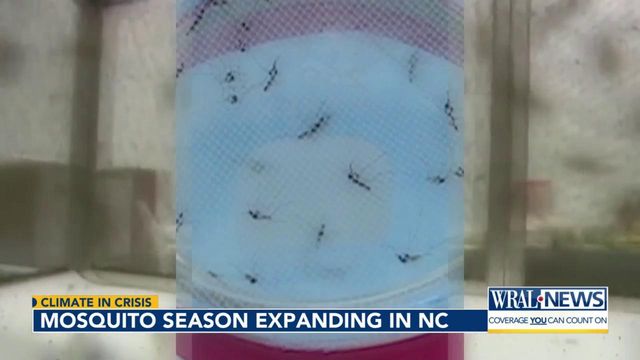Mosquito season expanding in Raleigh, posing health risks from disease transmission
North Carolina is becoming a hot spot for mosquitoes, increasing health risks from the diseases they can carry.
Michael Reiskind is an entomology professor at North Carolina State University who says mosquito season is getting longer.
"In addition to the planet getting warmer, we also have land use change and invasive species, and all those things have contributed to a really different mosquito landscape than it was 40 or 50 years ago," Reiskind said.
Climate Central recently assessed mosquito weather trends from 1979 to 2022 in 242 U.S. locations and found the Southeast experience the most annual mosquito days at nearly 60% of the year.
The Raleigh area saw an increase of 27 more days since 1979 that had conditions ripe for mosquito activity, with an average relative humidity of at least 42% and minimum and maximum temperatures between 50–95°F.

"That's really bad for the spread of all kinds of diseases including West Nile and Zika," said Kaitlyn Trudeau, a researcher with Climate Central. "It's gonna make it harder for us to stay healthy when we're getting bitten more often."
In 2023, almost 900 cases of tick- and mosquito-borne illnesses were reported across the state.
April is Tick and Mosquito Awareness Month, and the North Carolina Department of Health and is launching a "Fight the Bite" campaign to increase awareness about the dangers of vector-borne diseases and educate residents about measures they can take to protect themselves.
Experts suggest taking measures to lower risk of illness including:
- Use a repellant that contains DEET
- Wear protective clothing
- Install and repair window screens
- "Tip and Toss" to reduce mosquito breeding by emptying standing water from flowerpots, gutters, buckets, pool covers, pet water dishes, discarded tires and birdbaths at least once a week
- Talk with your primary care provider or local health department if you plan to travel to an area where exotic mosquito-borne diseases occur












